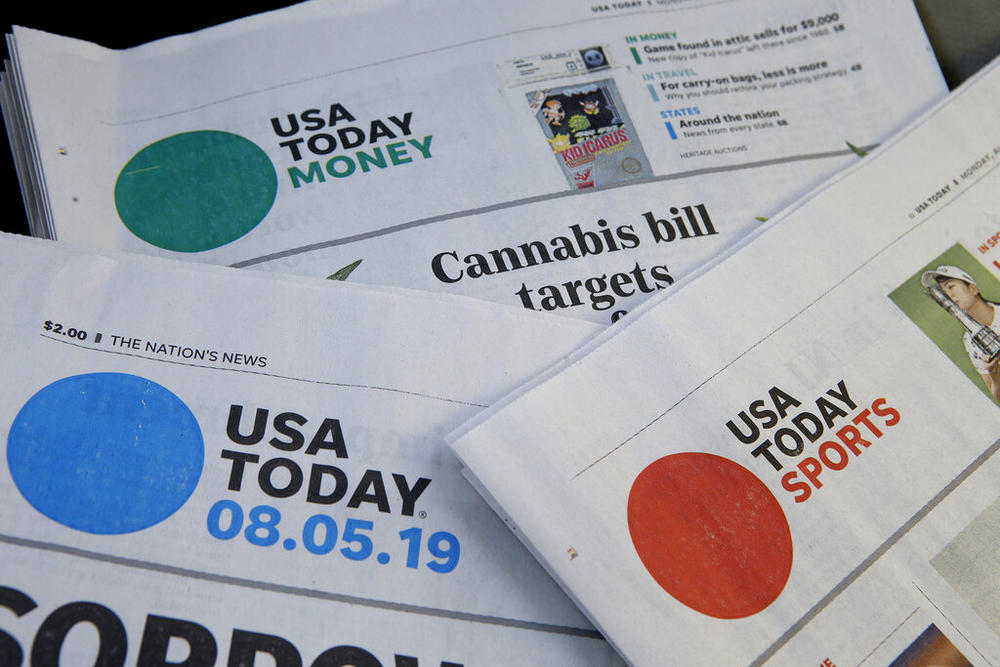
Caption
Sections of a USA Today newspaper lie on display, Aug. 5, 2019, in Norwood, Mass. On Friday, Aug. 12, 2022, newspaper publisher Gannett Co., confirmed that it’s laying off some of its newsroom staff, part of a cost-cutting effort to lower its expenses as revenue crumbles amid a downturn in ad sales and customer subscriptions.
Credit: AP Photo/Steven Senne, File

